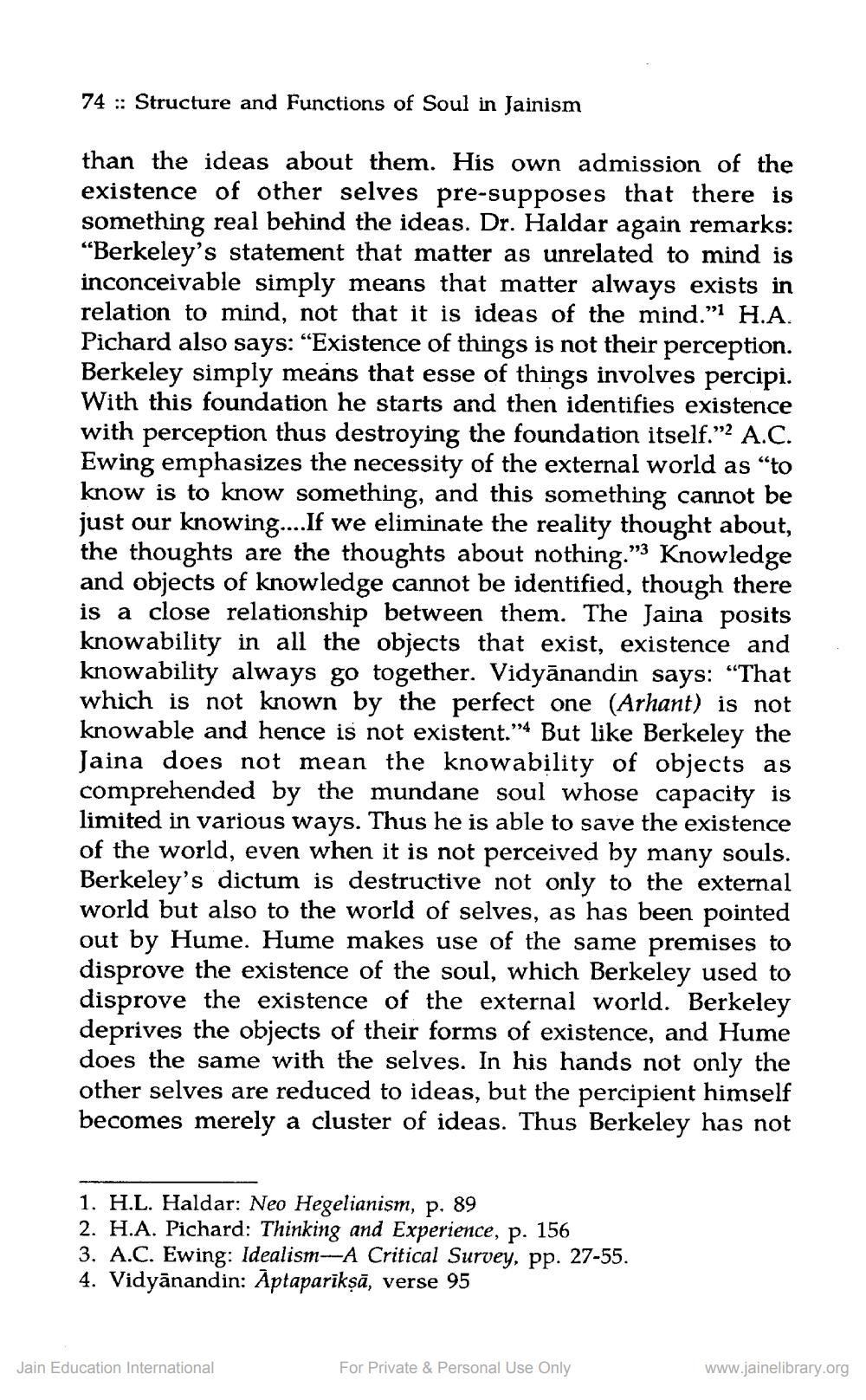________________
74 :: Structure and Functions of Soul in Jainism
than the ideas about them. His own admission of the existence of other selves pre-supposes that there is something real behind the ideas. Dr. Haldar again remarks: “Berkeley's statement that matter as unrelated to mind is inconceivable simply means that matter always exists in relation to mind, not that it is ideas of the mind." H.A. Pichard also says: “Existence of things is not their perception. Berkeley simply means that esse of things involves percipi. With this foundation he starts and then identifies existence with perception thus destroying the foundation itself.”? A.C. Ewing emphasizes the necessity of the external world as “to know is to know something, and this something cannot be just our knowing....If we eliminate the reality thought about, the thoughts are the thoughts about nothing."3 Knowledge and objects of knowledge cannot be identified, though there is a close relationship between them. The Jaina posits knowability in all the objects that exist, existence and knowability always go together. Vidyānandin says: “That which is not known by the perfect one (Arhant) is not knowable and hence is not existent."4 But like Berkeley the Jaina does not mean the knowability of objects as comprehended by the mundane soul whose capacity is limited in various ways. Thus he is able to save the existence of the world, even when it is not perceived by many souls. Berkeley's dictum is destructive not only to the external world but also to the world of selves, as has been pointed out by Hume. Hume makes use of the same premises to disprove the existence of the soul, which Berkeley used to disprove the existence of the external world. Berkeley deprives the objects of their forms of existence, and Hume does the same with the selves. In his hands not only the other selves are reduced to ideas, but the percipient himself becomes merely a cluster of ideas. Thus Berkeley has not
1. H.L. Haldar: Neo Hegelianism, p. 89 2. H.A. Pichard: Thinking and Experience, p. 156 3. A.C. Ewing: Idealism---A Critical Survey, pp. 27-55. 4. Vidyānandin: Aptaparikṣā, verse 95
Jain Education International
For Private & Personal Use Only
www.jainelibrary.org




